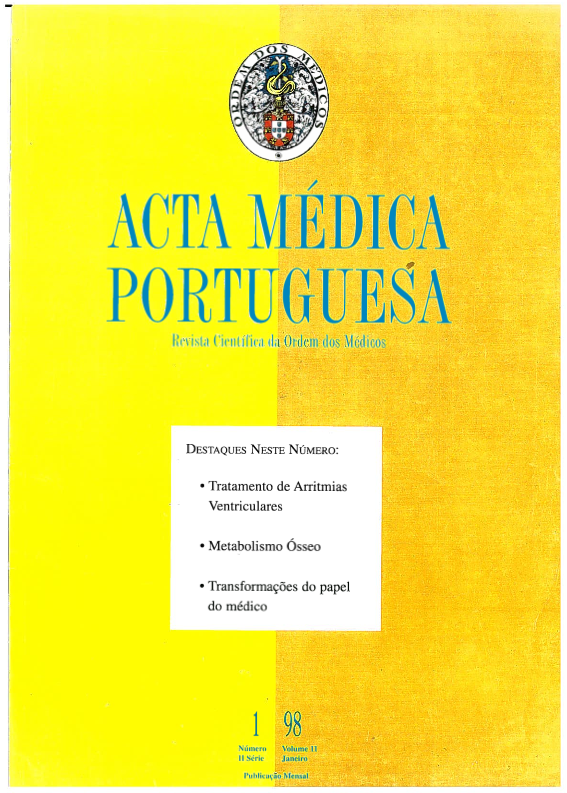Genetic diagnosis of familial adenomatous polyposis: detection of APC gene mutations based on an in vitro synthetized protein.
DOI:
https://doi.org/10.20344/amp.2205Abstract
Familial adenomatous polyposis of the colon (FAP) is a dominant autosomic disease in which virtually 100% of the affected individuals develop colorectal cancer before the age of forty. The gene responsible for this disease (APC gene) is mutated in the germ line of these patients. The genetic diagnosis of FAP was initially done using linkage analysis. Because 95% of the mutations in APC gene result in a stop codon which will originate a truncated protein, previous authors have proposed that the mutation analysis should be performed using an in vitro synthesized protein (IVSP) assay. In this study we searched for germinal mutations in exon 15 of the APC gene in subjects belonging to families with FAP, using the IVSP assay. Eighty individuals belonging to 23 families were included in this series. We started by studying exon 15 which encompasses 6500/8535 bp and which corresponds to 75% of the coding region. This exon was divided into four fragments, which were amplified by PCR and the product was used in a transcription/translation assay. Mutations resulting in a truncated protein were detected in 9/23 (39%) of the families. This corresponds to 20/42 (48%) of individuals analysed in these nine families. All the mutations were located in the 5' region of exon 15, with seven of them being in the first fragment and the remaining two in the same place of the second fragment. With the exception of two healthy individuals at risk, all the others with a detected mutation, already exhibited clinical manifestations. One of these two individuals was later confirmed to harbor colonic polyps, strengthening the diagnostic accuracy of this IVSP analysis. We also identified 10 other healthy subjects at risk with a negative genetic diagnosis, who were therefore removed from surveillance programs. In conclusion, our results show that IVSP analysis has a high sensitivity as a diagnostic tool and should be used as the first screening method to identify those individuals who have inherited the genetic defect, even before they have developed any symptoms. This will enable us to try new drugs which may potentially delay or prevent the development of colonic polyps.Downloads
Downloads
How to Cite
Issue
Section
License
All the articles published in the AMP are open access and comply with the requirements of funding agencies or academic institutions. The AMP is governed by the terms of the Creative Commons ‘Attribution – Non-Commercial Use - (CC-BY-NC)’ license, regarding the use by third parties.
It is the author’s responsibility to obtain approval for the reproduction of figures, tables, etc. from other publications.
Upon acceptance of an article for publication, the authors will be asked to complete the ICMJE “Copyright Liability and Copyright Sharing Statement “(http://www.actamedicaportuguesa.com/info/AMP-NormasPublicacao.pdf) and the “Declaration of Potential Conflicts of Interest” (http:// www.icmje.org/conflicts-of-interest). An e-mail will be sent to the corresponding author to acknowledge receipt of the manuscript.
After publication, the authors are authorised to make their articles available in repositories of their institutions of origin, as long as they always mention where they were published and according to the Creative Commons license.









